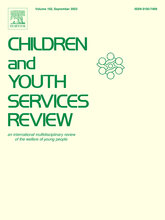This page contains documents and other resources related to children's care in the Americas. Browse resources by region, country, or category.
Displaying 191 - 200 of 3191
Case management is used with both families at risk of separation and those where children have already separated and are in the process of being reintegrated, including biological family or placed into an alternative family (e.g., foster or kinship). The end goal of case management is that children are safe and nurtured within a family that is able to care for them, and access needed services that address risks and increase resilience.
This analysis considers foster care regulations in three jurisdictions in Finland, New Zealand, and Wisconsin, USA, and the effects of policy decisions on eligibility for relative caregivers and placement options for children in out-of-home care.
This webinar introduced new global inter-agency guidance on kinship care. During the webinar, panelists shared key lessons learnt on how to support kinship care, drawing particularly on examples of promising practices from South Africa, Zimbabwe, Liberia, and Brazil.
The proposed plan ‘will harm vulnerable children who need loving homes and set a precedent that undermines everyone’s parental rights,’ an ethicist warns.
Former President Donald Trump, the leading candidate for the Republican presidential nomination in 2024, has promised to crack down on illegal immigration and restrict legal immigration if elected to a second term in office.
Bethan Carter, a research associate at Cardiff University, discusses the ReThink Project; a project run in collaboration with Adoption UK and Coram Voice to investigate what processes are linked to mental health and wellbeing of care-experienced young people and how they manage at two key transitions in life.
During this webinar, participants explored the role of the Catholic Church in the separation of Indigenous children from their families and the long-lasting effect on Indigenous communities.
This global systematic review incorporated a comprehensive search of available literature from 1990 and captures the extant literature relating to process evaluations for interventions which address care-experienced children and young people’s mental health and well-being, and is one of the first syntheses of process evaluations in social care.
From 2021 to 2023, the United States Department of Health and Human Services (HHS) has taken administrative actions to prioritize the implementation of Family First prevention services. These actions minimize traumatic deployments of CPS, reduce the use of family separations, and bolster support for families providing kinship care. In this brief, the authors highlight where progress has been made—and where the Administration for Children and Families (ACF) could still take additional steps in 2024.
Relatives and family friends who step up when struggling parents can’t care for their children play an essential role in keeping countless kids out of foster care. In New York, hundreds of these caregivers receive monthly financial payments that amount to thousands of dollars a year, through the state’s Kinship Guardianship Assistance Program (KinGAP). But here and across the nation, the money is still tight, and not everyone who takes in foster children qualifies.




